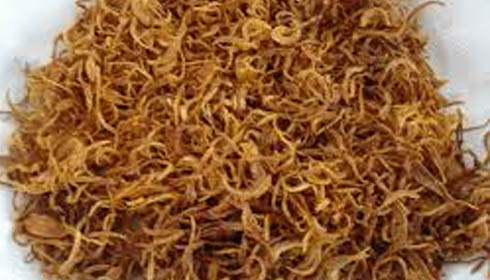
Hidden Dangers in Cooking: Sulphur-Rich Foods Linked to TFA Formation
Cooking with vegetables that are high in sulphur is a new source of trans fatty acids (TFA) generation, according to a study that was conducted by a Japanese research team and published in Food Research International.
The World Health Organization's WHO attributes around 278,000 deaths to TFAs each year and recommends that their consumption be reduced to less than 1% of daily calorie intake. Fried foods, margarine, and other processed foods frequently contain TFAs as a result of the hydrogenation of vegetable oils.
However, a study conducted by Junji Obi of Nissui Corporation and Dr. Masaki Honda of Meijo University raises concerns about their occurrence during everyday cooking, particularly with sulphur-rich foods like garlic, onions, and broccoli sprouts.
TFA formation is driven by sulphur and heat. The researchers looked at how sulphur compounds, like isothiocyanates and polysulfides, affect the production of TFA using a model system and real-life cooking situations. These compounds are found naturally in many plants and have been proven to modify the molecular structure of unsaturated fatty acids (UFAs) when exposed to heat.
"We wanted to understand the principal characteristics of UFA isomerisation in triglycerides promoted by sulphur compounds," explains Junji Obi, the study's first author.
The researchers investigated temperature, reaction time, sulphur component content, and the role of antioxidants in isomerisation mitigation. When cooking temperatures exceed 140°C, sulphur compounds significantly accelerate the conversion of UFAs to TFAs. they further found that garlic and onions had the greatest impact on TFA production among all the veggies evaluated.
The researchers went on to discover that α-tocopherol, which is an antioxidant, has the ability to decrease the isothiocyanate-induced isomerisation, but it does not have any impact on polysulfides. The study draws attention to the fact that the alteration in total fatty acid (TFA) content under typical cooking conditions is relatively insignificant, amounting to only a few percentage points.
However, the findings highlight the dangers of cooking sulphur-rich foods at high temperatures in oils like soybean or olive oil. "The release of TFAs during regular cooking is predicted to be low. As a result, extra precautions are unnecessary," adds Dr. Honda, the corresponding author.
"However, it is important to understand that cooking with ingredients rich in natural sulphur compounds may increase the risk of TFA intake." This study did not propose removing sulphur-rich vegetables from diets because they are high in nutrients. Instead, it encourages deliberate cooking practices.
To help limit TFA production, limit frying time, cook at moderate temperatures, and integrate antioxidants into your meals.Looking ahead. This study opens up new avenues for investigating how natural food components interact with cooking processes.
Future research could develop strategies to reduce unintended TFA generation during home cooking, thus protecting public health as the the findings underscore the intricacies of everyday food concerns, alerting both consumers and scholars that even natural cooking items may provide hidden risks